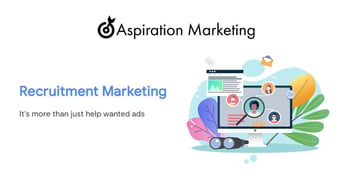What is Employer Branding, and Why Does It Matter?
In today's hyper-competitive job market, securing top talent is no longer a luxury; it's a necessity. With countless companies vying for the same skilled professionals, standing out has become exponentially challenging. A staggering 80% of candidates now research a company's culture before applying, underscoring the critical role that employer reputation plays in the hiring process.
Attracting and retaining top talent is a complex puzzle that many businesses struggle to solve. Rising turnover rates, increased recruitment costs, and a shrinking pool of qualified candidates are just a few of the hurdles companies face. But what if there was a strategic approach to not only overcome these challenges but to thrive in this competitive landscape?
Enter employer branding. This powerful concept is transforming the way companies attract, hire, and retain employees. By strategically shaping your company's image as an exceptional place to work, you can gain a significant competitive advantage. A strong employer brand can dramatically reduce recruitment costs, boost employee retention, and enhance your overall brand reputation.
-
A strong employer brand can reduce the cost per hire by as much as 50%.
-
Employees who understand and connect with their company's mission and values are 67% more engaged.
-
Companies with strong employer brands are three times more likely to make a quality hire.
Let's explore how employer branding can revolutionize your talent acquisition strategy and drive your business forward.
What is Employer Branding?
Employer branding is the perception of a company as an employer. It's the image a company projects to attract and retain top talent. Think of it as your company's reputation as a workplace. A strong employer brand differentiates your company in the job market, making it a desirable place to work.
A robust employer brand is built on several key pillars:
-
Company culture: This is the personality of your company. It encompasses your values, beliefs, and how employees interact. A positive and inclusive culture is often a top priority for job seekers.
-
Company values: These are the core principles that guide your business. They define how you operate and treat employees, customers, and the community.
-
Company mission: Your mission statement outlines your company's purpose and goals. It provides employees with a sense of direction and meaning in their work.
-
Employee experience: This refers to the overall journey of a team member from recruitment to departure. It encompasses everything from onboarding to career development and benefits.
-
Employer value proposition (EVP): Your EVP is the unique package of benefits, challenges, and rewards offered to employees. It's what sets your company apart from competitors.
A strong employer brand benefits both employees and the business. For employees, it offers more than just a paycheck. It promises opportunities for growth, a fulfilling work environment, and a sense of belonging. When employees feel valued and supported, they are more likely to be engaged, productive, and loyal.
From a business perspective, a strong employer brand translates to a competitive advantage. It attracts top talent, reduces recruitment costs, and improves employee retention. When your company has a reputation for being a great place to work, high-performing candidates are more likely to apply, and current employees are less likely to seek opportunities elsewhere.
Why Employer Branding Matters
The job market has undergone a seismic shift. Gone are the days when employers held all the cards. Today, the power dynamic has tilted dramatically in favor of employees. With a plethora of job opportunities and access to information at their fingertips, candidates are more selective than ever.
The rise of online review platforms like LinkedIn, Indeed, and Glassdoor have amplified the importance of employer reputation. Employees are no longer hesitant to share their experiences, both positive and negative. A single negative review can tarnish a company's image and deter potential candidates. Conversely, a strong, positive online reputation can significantly boost a company's attractiveness. Managing your online presence and responding to reviews proactively is essential for maintaining a strong employer brand.
Compounding the challenge is the intensifying war for talent. The demand for skilled professionals far exceeds the supply in many industries. Acquiring top talent is becoming increasingly costly and time-consuming. A strong employer brand can serve as a powerful magnet, attracting top candidates and streamlining the recruitment process.
Finally, the role of employees as brand ambassadors cannot be overstated. Engaged employees are passionate about their company and are more likely to share positive experiences with their networks. This word-of-mouth marketing can be invaluable in attracting new talent. By fostering a positive work environment and empowering employees to be advocates, companies can harness the immense power of employee advocacy to build a strong employer brand.
Examples of Successful Employer Branding
Industry Leaders
From tech giants to smaller, more focused enterprises, these examples showcase the diverse ways to build a compelling employer brand.
Synonymous with innovation and team member well-being, Google has cultivated a culture of creativity, collaboration, and perks. Their focus on employee growth, cutting-edge projects, and a relaxed work environment have solidified their position as a dream employer for many. Tactics like employee spotlights, campus-like offices, and a strong emphasis on work-life balance have contributed to their success.
Patagonia
This outdoor apparel company is celebrated for its commitment to sustainability and social responsibility. Patagonia's employer brand aligns seamlessly with its core values, attracting environmentally conscious and passionate employees. By offering opportunities for employees to engage in conservation efforts and providing flexible work arrangements, Patagonia has created a loyal and dedicated workforce.
Warby Parker
This eyewear company disrupted the industry with its affordable, stylish products and commitment to vision care access. Warby Parker's employer brand reflects its mission-driven culture, emphasizing social impact and employee empowerment. Their use of storytelling, employee-generated content, and a strong emphasis on company values has resonated with a young, socially conscious audience.
Key Takeaways
While these companies represent different industries and sizes, they share common ground. Their success can be attributed to several key strategies:
-
Alignment with company values: A strong employer brand is authentic and reflects the company's core values.
-
Employee-centric culture: Prioritizing team member well-being, growth, and development is essential.
-
Transparent communication: Open and honest communication builds trust and engagement.
-
Leveraging storytelling: Sharing employee stories and company missions can create a powerful emotional connection.
-
Social media engagement: Utilizing platforms like LinkedIn, Instagram, and TikTok to showcase company culture and employee experiences.
-
Employee advocacy: Empowering employees to be brand ambassadors.
By incorporating these elements into your employer branding strategy, you can create a compelling narrative that attracts and retains top talent. Remember, the key is to be genuine and authentic in your approach.
How to Develop Your Employer Branding Strategy
Developing a strong employer brand is a strategic journey. It requires introspection, creativity, and a deep understanding of your target audience.
Start with Self-Reflection
Before crafting your employer brand, you must understand your company's DNA. Conduct an honest assessment of your company culture and employee experience. Survey your employees to gauge their satisfaction, identify strengths, and uncover areas for improvement. This feedback will serve as a foundation for building an authentic employer brand.
Define Your Value Proposition
Your employer value proposition (EVP) is your company's unique selling point to potential employees. What makes your company a desirable place to work? Consider factors such as career growth opportunities, work-life balance, compensation and benefits, company culture, and social impact. Articulating your EVP clearly will help you attract candidates who align with your company's values and goals.
Craft a Compelling Employer Brand Story
Every great brand has a story, and your employer brand is no exception. Develop a narrative that encapsulates your company's mission, values, and employee experience. Use storytelling to create an emotional connection with potential candidates. Highlight success stories, employee journeys, and the impact your company makes on the world. A compelling story will resonate with your target audience and leave a lasting impression.
Choose the Right Communication Channels
To reach your target audience effectively, you must be present where they are. Identify the online and offline channels where your ideal candidates spend their time. Social media platforms like LinkedIn, Instagram, and TikTok offer opportunities to showcase your company culture and engage with potential employees. Your company website, career page, and employee referral programs are also crucial touchpoints. Consider traditional channels like job boards and campus recruitment events as well.
Tips for Building and Maintaining a Strong Employer Brand
A strong employer brand is built on a solid foundation of employee satisfaction and engagement. Here are some practical tips to help you nurture and maintain a positive employer brand:
Invest in Employee Experience
Happy employees are the cornerstone of a strong employer brand. Prioritize employee well-being by creating a positive and inclusive work environment. Offer opportunities for growth and development, recognize and reward employees, and foster open communication. A thriving workplace culture will naturally attract top talent and encourage team member advocacy.
Showcase Your Culture on Social Media
Social media is a powerful tool for sharing your company culture with the world. Use platforms like Instagram, Facebook, and LinkedIn to showcase employee experiences, company events, and behind-the-scenes glimpses of your workplace. Authentic storytelling and visually appealing content can create a strong emotional connection with potential candidates. Encourage employees to share their experiences using branded hashtags.
Promote Employee Testimonials
There's no better endorsement than a satisfied employee. Encourage your team to share their positive experiences through employee testimonials, reviews on platforms like Glassdoor, and social media posts. Their authentic stories can be incredibly influential in attracting top talent. Create opportunities for employees to share their perspectives through employee spotlights, video interviews, or blog posts.
Stay Consistent
Building a strong employer brand is an ongoing journey. Consistency is key. Ensure your employer branding efforts align with your company's overall brand identity and messaging. Regularly assess your employer brand and make adjustments as needed to reflect your company's evolution. By staying committed to your employer branding strategy, you can build a lasting reputation as an employer of choice.
Ready to Attract Top Talent?
By crafting a compelling employer brand, businesses can attract top talent, boost employee retention, and enhance their overall reputation. A strong employer brand is built on a solid foundation of company culture, employee experience, and authentic storytelling.
Ready to elevate your employer brand? Aspiration Marketing is here to help you unlock your full potential! Our team of experts specializes in crafting compelling employer branding strategies tailored to your business objectives. Let us help you attract and retain top talent.
Contact us today to schedule a consultation and discover how we can elevate your employer brand.
This content is also available in:
- German: Was ist Employer Branding, und warum ist es wichtig?
- Spanish: ¿Qué es employer branding y por qué es importante?
- French: L'image de marque de l'employeur. Pourquoi est-elle importante ?
- Italian: Che cos'è l'employer branding e perché è importante?
- Romanian: Ce este employer branding și de ce este important?
- Chinese: 什么是雇主品牌,为什么它很重要?

Claudia, a People Operations leader with 9+ years of experience in HR strategy, employer branding, and employee engagement, has guided human resources functions for several high-growth international companies. She played a key role in developing the global employer branding strategy at UiPath during its critical expansion phase. Claudia's expertise lies in scaling People Operations and building the essential HR frameworks that enable dynamic companies to grow effectively.









Leave a Comment